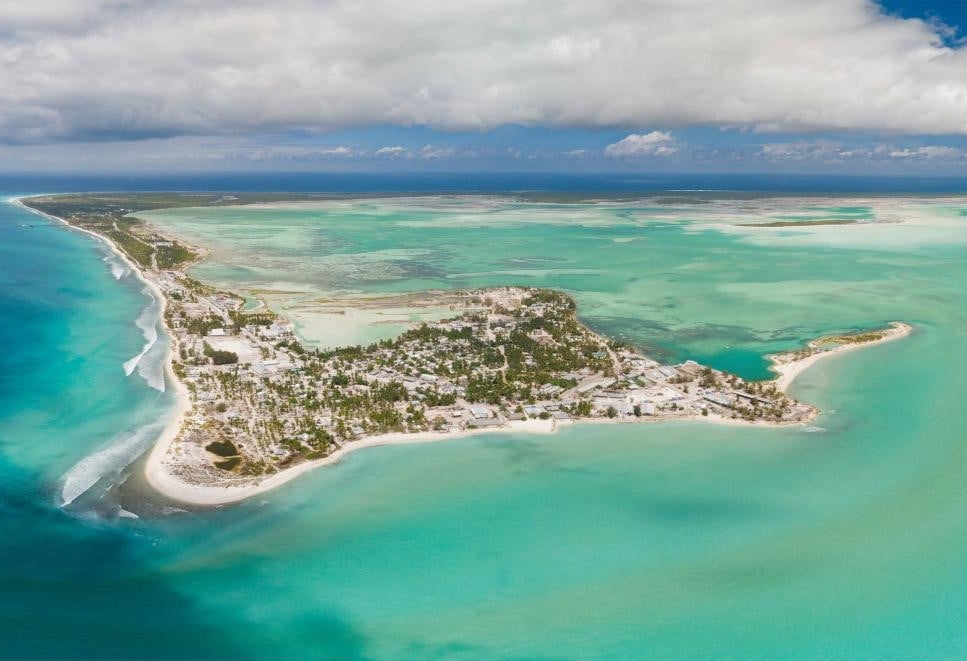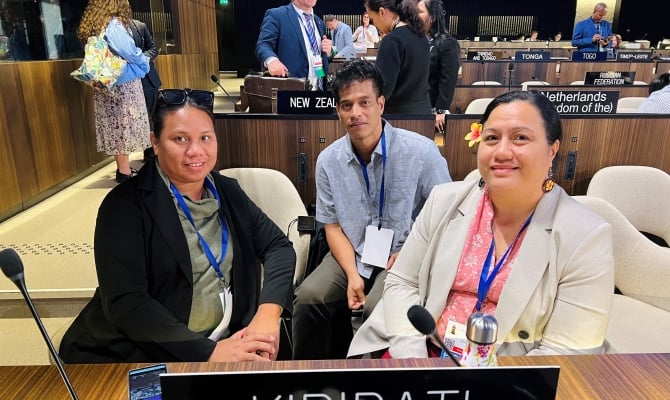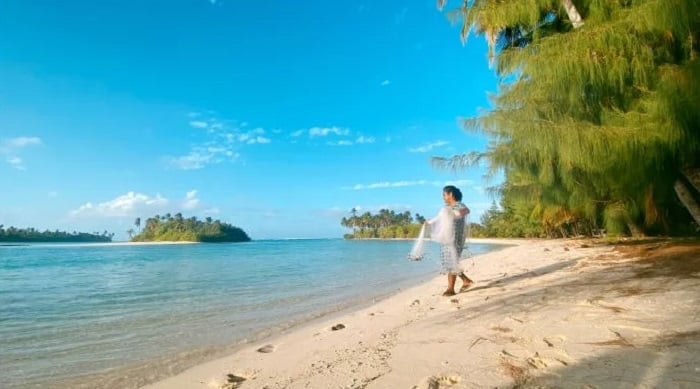The European Union and Kiribati signed a new fisheries protocol to the sustainable fisheries partnership agreement for a duration of five years.
The Kiribati protocol will grant the European Union fleet operating in the Pacific Ocean access to the richest and healthiest tuna stocks worldwide, an area which provides for more than half of the global tuna catch.
Stocks of the four key tuna species – skipjack, yellowfin, bigeye and albacore – are deemed by the scientists to be in a healthy state and are currently exploited in a sustainable way. The European Union has been an active actor within the Western and Central Pacific Fisheries Commission (WCPFC) to promote a sustainable and responsible fisheries agenda, in line with the objectives of the EU’s common fisheries policy.
Virginijus Sinkevičius, Commissioner for Environment, Oceans and Fisheries, said: “Our partnership agreements have gained worldwide recognition as a benchmark for good fisheries governance. The European Union is pleased to resume its longstanding fisheries partnership with Kiribati over the next five years. With the renewal of the fisheries protocol, Union vessels will be able to continue exploiting one of the healthiest tropical tuna stocks. We are particularly proud to contribute, through our sectoral support, to the development of the Kiribati fisheries sector, a Pacific Small Island developing state which relies on their valuable tuna resources for its economic development”.
The protocol signed today will allow EU fishing vessels to resume their fishing activity in the Kiribati fishing grounds during the next five years.
Within the new protocol, EU and shipowners contributions will potentially amount to a total of approximately €18 million (US$18.8 million) for the next five years, including payments to support implementation of initiatives taken in the context of the Kiribati sectoral fisheries and maritime policy to the tune of €2 million (US$2 million). The implementation of the sectoral support programme will allow Kiribati to reinforce the capacity of Kiribati’s Ministry of Fisheries and Marine Resources Development as well as to continue with the implementation of sustainable fisheries policies, and more specifically to enhance the livelihoods of artisanal fishers, to reinforce the monitoring, control and surveillance capabilities, and to maintain its food safety standards for local seafood consumption and for exports. It is important to mention that assistance provided by the sectoral support has allowed Kiribati to be the fourth Pacific island country authorised to export seafood products to the European Union.
For the first time in a fisheries protocol between the European Union and Kiribati, it was agreed to have an effort management regime (fishing days) instead of a regime based on catch management (reference tonnage), which is better aligned with Kiribati’s domestic legislation and in line with the way the WCPFC manages its purse seine tropical tuna fisheries.
The new protocol will allow Union purse seiners to fish up to 160 fishing days annually, with the possibility for the ship-owners to buy additional days only when there is sound scientific evidence that the conditions of the tuna stocks allow for further expansion of fishing activities. The fisheries protocol provides for a strong monitoring, control and surveillance framework, which will allow both parties to ensure that Union vessels, a fleet which operates under the highest compliance and social standards, comply with national, sub-regional and regional conservation and management measures. The authorities of Kiribati in particular will ensure that the fishing days made available to the Union vessels are strictly monitored, to ensure that Kiribati’s effort limits declared under the WCPFC are duly respected.
Kiribati and the European Union have a longstanding cooperation in fisheries, which dates back to 2003 when the first fisheries partnership agreement was negotiated. Kiribati was the first fisheries agreement negotiated by the European Union in the Pacific Ocean.
The fisheries agreement with Kiribati allows four Union tuna purse seiners to fish in the waters of the Republic of Kiribati, a remote archipelagic state located in the South Pacific, which is made up of three groups of islands, namely the Gilbert Islands, Phoenix Islands and Line Islands (from west to east).
Kiribati has an Exclusive Economic Zone (EEZ) of 3.55 million km2, which is one of the world’s largest EEZs. Its EEZ is unique in as far as it is discontinuous, having a distance between its eastern and western extremes of around 4,500 km. Kiribati’s most economically valuable resource is tuna fisheries, having one of the most productive tuna fishing grounds in the world. During El Niño periods, the favourable fishing areas for purse seining shift eastwards toward the Kiribati EEZ, resulting in larger tuna catches. Fishing revenue, and particularly fishing license revenue, is the main income source for the government of Kiribati.
Tuna species management within Kiribati waters falls under the responsibility of the Western and Central Pacific Tuna Commission (WCPFC), the regional fisheries management organisation established to conserve and manage tuna and other highly migratory fish stocks across the western and central areas of the Pacific Ocean.
The sustainable fisheries partnership agreementprovides a unique platform for an open and frank policy dialogue on fisheries issues between the EU and Kiribati on an equal basis. The sustainable fisheries partnership agreement offers the highest standards in terms of transparency, sustainability, governance, science as well as monitoring and control.
The new protocol will provisionally enter into force once relevant adoption procedures will be completed by both parties.
This story was originally published at EU on 03 October 2023, reposted via PACNEWS.




